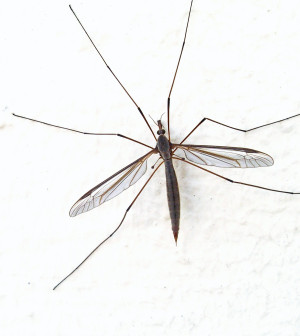- Could Your Grocery Store Meat Be Causing Recurring UTIs?
- Are You Making This Expensive Thermostat Error This Winter?
- Recognizing the Signs of Hypothyroidism
- 10 Strategies to Overcome Insomnia
- Could Artificial Sweeteners Be Aging the Brain Faster?
- Techniques for Soothing Your Nervous System
- Does the Water in Your House Smell Funny? Here’s Why
- Can a Daily Dose of Apple Cider Vinegar Actually Aid Weight Loss?
- 6 Health Beverages That Can Actually Spike Your Blood Sugar
- Treatment Options for Social Anxiety Disorder
Childhood Vaccines Vindicated Once More


Parents worried about getting young children vaccinated against infectious diseases have fresh cause for reassurance, researchers say.
A new review of existing scientific evidence has concluded that childhood vaccines are safe and don’t cause serious health problems such as autism or leukemia.
“Our findings support that vaccines are very safe for children, and add to a substantial body of evidence that the benefits of vaccination outweigh the very low risks,” said senior author Dr. Courtney Gidengil, an associate physician scientist at RAND Corporation and an instructor at Harvard Medical School. “Hopefully, this will engage hesitant parents in discussions with their health care providers.”
The review found strong evidence that the MMR (measles, mumps and rubella) vaccine is not associated with autism, which is consistent with previous reviews of this rumored link.
Some parents have chosen not to have their children vaccinated because of a now-debunked and retracted study published in 1998 that suggested that the MMR vaccine might cause autism. It was later reported that the study’s author, Dr. Andrew Wakefield, had altered some of the study’s results.
The researchers behind the new study also found no link between childhood leukemia and vaccines for MMR, DTaP (diphtheria, tetanus and pertussis), tetanus, influenza and hepatitis B.
Overall, vaccines given to children 6 or younger are safe, causing few side effects, the review concluded. The findings are published in the July 1 online edition and the August print issue of the journal Pediatrics.
“We found that the serious adverse effects linked to vaccines are extremely rare,” said lead author Margaret Maglione, a policy analyst at RAND Corporation.
These findings should provide solid support for pediatricians and family physicians in their discussions with parents about the benefits and risks of immunization, said Dr. Carrie Byington, a professor of pediatrics and vice dean of academic affairs and faculty development at the University of Utah College of Medicine.
In an accompanying editorial, Byington noted recent medical school graduates have reported themselves more skeptical of the safety and effectiveness of vaccines than did older graduates.
“I’m hopeful younger physicians who have not seen the devastating vaccine preventable infections may see the data and strengthen their will to communicate the importance of vaccines to parents,” Byington said.
Doctors struggle to maintain a vaccination rate high enough to prevent outbreaks, researchers said in background material. Parents refusing to have their children vaccinated has contributed to recent outbreaks of preventable diseases like measles and whooping cough.
“Should more and more people choose not to vaccinate their children, we’re going to see more and more stories like these,” Gidengil said.
The U.S. Agency for Healthcare Research and Quality hired RAND Corporation to review the safety of vaccines recommended for children, adolescents, adults and pregnant women.
In their study, the researchers reported their findings on vaccines for children 6 and under, based on a systematic review of 67 previous studies. The researchers also included information from the more than 1,000 studies in a previous review done by the Institute of Medicine in 2011.
Although they found no link between vaccines and autism or leukemia, they did find some very rare links between certain vaccines and children’s health problems.
For example, the rotavirus vaccine is associated with an increased risk of intussusception, a serious disorder in which part of the intestine slides into an adjacent part of the intestine, causing blockage of the bowels.
“The rate is about one in 100,000 to five in 100,000, so it is extremely rare,” Maglione said of the rotavirus link. Rotavirus is a common cause of sometimes severe gastrointestinal infections in babies and young children.
The evidence also indicated a link between MMR vaccine and febrile seizures, which are convulsions brought on by a fever in infants and small children.
Gidengil noted that illnesses and viruses also can cause the type of high fever that results in febrile seizures. She added that these seizures are generally harmless, a view supported by the U.S. National Institutes of Health.
“They can be frightening for parents to witness, but there’s no evidence that it causes long-term brain damage,” she said.
Doctors are fighting against their own success in the struggle to emphasize the importance of vaccination, Byington said.
“We live in such a safe environment in the United States and our public health is excellent, so people don’t have a memory of what it was like before,” she said.
But Byington herself has witnessed the ravages of infectious disease firsthand. As a medical student and resident, she was present during the largest measles outbreak in recent U.S. history, from 1989 to 1990 in Houston.
“I saw myself about 1,000 cases of measles in children. I saw six pregnant women and their babies die,” she said. “These things stay with you, because knowing it was all preventable, it is heartbreaking.”
More information
For more about vaccine safety, visit the U.S. Centers for Disease Control and Prevention.
Source: HealthDay
Copyright © 2026 HealthDay. All rights reserved.










